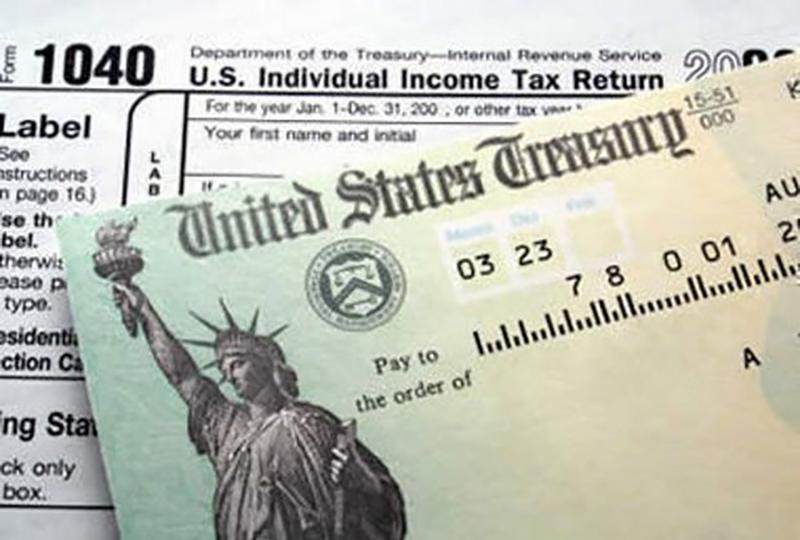
Complimentary Story
“Moreover, it is required of stewards that they be found trustworthy.” (1 Corinthians 4:2).“Honor the LORD with your wealth and with the firstfruits of all your increase.” (Proverbs 3:9).
About 70% of taxpayers receive sizable refunds from the Internal Revenue Service. Just how sizable are these refunds? The average refund totals about $2,800. 1
What do households do with that money? It varies. Last year, consumer financial services company Bankrate asked Americans about their plans for their federal tax refunds. Thirty-one percent of the respondents to Bankrate’s survey said that they would save or invest those dollars, and 28% indicated they would attack their debts with the money. Another 27% said they would buy food with that cash or use it to pay utility bills. Just 6% said they would earmark their refunds for shopping sprees or vacations. 2
So, according to those survey results, about six in ten people who get a refund will use it to try and improve their personal finances. You could follow their example.
Do you have an adequate emergency fund? If not, maybe you could strengthen it with your refund. If you have no such fund at all, your refund gives you an opportunity to create one.
You might use your refund to pay off your worst debts. High-interest debts, in particular – if you pay off a debt that carries 16% interest, getting rid of that liability is, effectively, like getting a 16% return. If you lack an emergency fund, you should create that first, then think about reducing your debt. Paying debt down without an emergency fund or some reservoir of savings just sets you up for quickly accumulating more debt.
“Pay to all what is owed to them: taxes to whom taxes are owed, revenue to whom revenue is owed, respect to whom respect is owed, honor to whom honor is owed. Owe no one anything, except to love each other, for the one who loves another has fulfilled the law.” (Romans 13:7-8).
If you own a home, you may want to consider making a thirteenth mortgage payment before 2017 ends. Putting your refund to work that way may make more sense financially than putting it in the bank, given the minimal interest rates on so many deposit accounts today.
You could pay insurance premiums with the funds. An IRS refund of around $3,000 could go a long way. If you have put off buying a term or permanent life policy, your refund might make insuring yourself easier.
Could you invest the money the IRS returns to you? You could increase (or max out) your annual retirement plan contribution with it, or simply direct it into another type of investment account. Whether the savings or investment vehicle is tax-advantaged or not, you have a chance to make that lump sum grow with time.
Aside from investing in equities or debt instruments, you could take your refund and invest in yourself. Maybe you might use it to start a business or support a business you already own. It could also be spent on education. Think of these options as “indirect investments” that might help you or your household grow wealthier one day.
Lastly, remember what a federal or state tax refund represents. It is a percentage of your earnings that the government holds back, in the event that you owe it in taxes. If you repeatedly get a refund, you might want to carefully adjust your W-4 withholding, so that your paychecks are larger during the year. 3
“His master said to him, ‘Well done, good and faithful servant. You have been faithful over a little; I will set you over much.’” (Matthew 25:23).
Submitted by Patrick Wallschlaeger, CEO, Midwest Professional Planners, Ltd., a Registered Investment Advisor. You can write to him at 2610 Stewart Ave. Suite 100 Wausau, WI 54401, or call him at 1-800-236-6775.
Citations.
1 - azcentral.com/story/money/business/consumers/2017/01/21/tax-season-6-things-to-know/96776554/ [1/21/17]
2 - thestreet.com/story/13523031/2/why-you-should-invest-your-tax-refund-instead-of-spending-it.html [4/8/16]
3 - turbotax.intuit.com/tax-tools/tax-tips/IRS-Tax-Forms/Top-5-Reasons-to-Adjust-Your-W-4-Withholding/INF14437.html [2/9/17]
Investment Advisory Services offered through Midwest Professional Planners, Ltd. (“MPPL”), 2610 Stewart Ave., Ste. 100, Wausau, WI 54401, 1-800-236-6775, an SEC-registered investment advisor. Securities products involving commission or transaction based fees are offered through APW Capital, Inc., 100 Enterprise Drive, Ste. 504, Rockaway, NJ 07866, 1-800-637-3211. Member FINRA/SIPC/MSRB. MPPL is independent of APW Capital, Inc. Registration with the SEC or State Regulatory Authority does not imply a certain level of skill or expertise.



